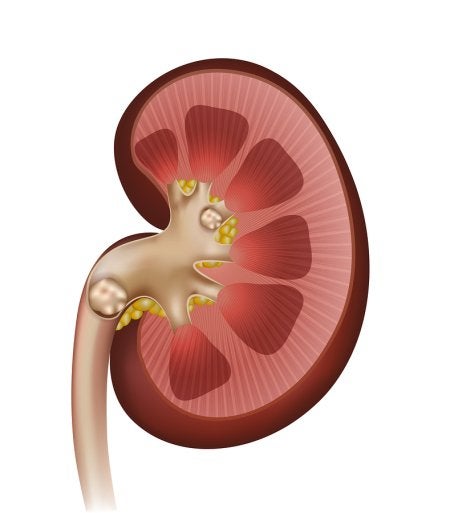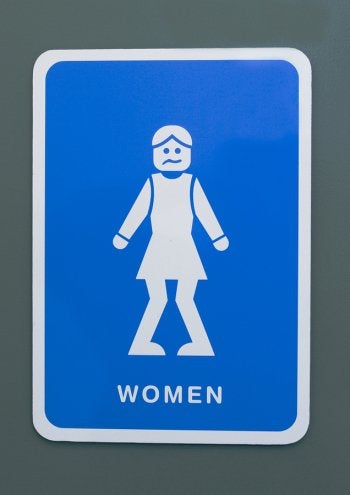-
Early Detection Techniques for Prostate Cancer
While a prostate cancer diagnosis can be overwhelming, you will want to remember that prostate cancer is highly treatable—especially with early detection. In this video, Dr. M. Leon Seard II discusses early prostate cancer detection and the men who should consider these screenings.
African American men are at the highest risk for more aggressive, deadly prostate cancers, so they should not hesitate to ask their doctors about screening. Prostate cancer screening consists of two initial tests: Digital rectal exam and the prostate-specific antigen (PSA) test. If these tests produce abnormal results, a prostate biopsy will be used to create an accurate diagnosis.
If you have never had a prostate cancer screening, or you want to explore your risk for prostate cancer in more detail, call Urology Associates P.C. at (888) 329-7700 to schedule a consultation within our Nashville practice.
-
Questions to Ask Your Urologist About Kidney Stones
Kidney stones are among the most common reasons for a visit to the urologist . These small deposits form inside the kidneys and may not cause symptoms for a while. However, when they begin to move around inside the kidneys or into the ureter, patients typically suffer from very intense pain and other troublesome symptoms. If you’ve been diagnosed with kidney stones, be a proactive patient by learning as much as you can about your condition. Your best source of information is your urologist.
 Will Medications Help?
Will Medications Help? If the stone is small enough to pass on its own, your urologist can prescribe pain relievers to improve your comfort level while you wait. If you only have mild pain, you might take ibuprofen or naproxen. Sometimes, an alpha blocker may be prescribed to relax the muscles in the ureter. This may reduce pain as the kidney stone passes.
Do I Need to Change My Diet?
While you’re waiting for the kidney stone to pass, it’s important to drink plenty of water. As a general rule of thumb, drink enough water so that your urine is clear. Even after you pass the kidney stone, it’s a good idea to continue drinking plenty of water to reduce your risk of future kidney stones. Additionally, some people may benefit from dietary changes . Ask your doctor if you should reduce your intake of salt, sugar, and animal protein, or increase your intake of fruits and vegetables.
Should I Have Surgery to Remove the Stone?
Many people can pass kidney stones without the need for surgery. However, some kidney stones are too large to pass. These will need to be removed surgically. Additionally, surgical intervention may be required if the kidney stones cause complications such as kidney damage, bleeding, or persistent urinary tract infections.
At Urology Associates, P.C. , we pride ourselves on our abiding commitment to superior patient education. If you’re suffering from kidney stones in Nashville, you can find the solutions you’re looking for at our facility. Should you require urology surgery for kidney stones, you can take advantage of the sophisticated medical technology in our Urology Surgery Center.
-
Spotlight on the Urology Surgery Center (USC)

At Urology Associates, P.C., we pride ourselves on offering our patients the very latest in medical technology and techniques to improve outcomes and patient safety. In addition to our on-site diagnostic and imaging center, urology patients can rely on our state-of-the-art Urology Surgery Center—the only freestanding surgical facility in Middle Tennessee that specializes in urologic conditions. At our Urology Surgery Center, USC, you can undergo a procedure within a comfortable setting and return home the same day. Kidney stones, prostate cancer, and bladder cancer are just a few of the conditions our specialists can treat.
The Urology Surgery Center is licensed by Tennessee as an ambulatory surgical facility, accredited by AAAHC, and certified by Medicare. To serve the needs of our patients, our facility features three operating rooms, two fluoroscopy urology rooms, four procedure rooms, and a 17-bay recovery room, along with a spacious and comfortable waiting area for family and friends.
If you’re anticipating a procedure at the Urology Surgery Center of Urology Associates, P.C., please view our informative patient brochure . Should you have any questions about urology in Nashville, one of our friendly staff members will be happy to assist you.
-
A Look at the Causes and Treatments of Urinary Incontinence
The loss of bladder control is referred to as urinary incontinence . The severity of this problem can vary widely. However, whether you experience occasional leakage or frequent accidents, it’s a good idea to consult a urologist. Although many people find bladder leakage to be an embarrassing problem, it’s also important to realize that it’s a common health issue that should be evaluated by a specialist.
 Temporary Causes
Temporary Causes Urinary incontinence isn’t always the result of an underlying medical problem. A urologist might ask you about your lifestyle because the consumption of alcohol, carbonated drinks, and caffeinated beverages can contribute to urinary incontinence. Certain medications, including muscle relaxants and sedatives, may also be the culprit of temporary incontinence.
Persistent Causes
If you experience persistent urinary incontinence, it may be due to an underlying medical condition such as a neurological disorder or an obstruction of the urinary tract. In men, prostate cancer or an enlarged prostate may lead to incontinence. Women may experience urinary incontinence because of pregnancy, childbirth, menopause, or a hysterectomy.
Behavioral Techniques
There are noninvasive treatment options for urinary incontinence . A urologist might recommend that you try behavioral techniques, for example. These include scheduled toilet trips, double voiding, and careful management of fluids and foods. Bladder training may help those who feel the frequent need to urinate.
Medications
A urologist may prescribe medications to help you control your symptoms. Some examples of medications that may be helpful include anticholinergics and mirabegron. Men may benefit from alpha blockers, while women might try topical estrogen.
Surgical Intervention
When lifestyle changes, behavioral techniques, and medications aren’t enough to manage urinary incontinence, you might consider surgical intervention. Your urologist can explain the types of procedures that may be helpful for you, which may include sling procedures, bladder neck suspension, and prolapse surgery.
Urology Associates, P.C. provides comprehensive urinary incontinence diagnosis and treatments at our state-of-the-art center for urology in Nashville . If you’re suffering from incontinence or another urologic condition, don’t delay seeking the help you need. A urologist at our facility can offer recommendations based on your unique needs and preferences.
Recent Posts
categories
- Uncategorized
- Bladder Cancer
- Women's Sexual Health
- MonaLisa Touch
- Urology
- Urologist
- Erectile Dysfunction
- Kidney Cancer
- Incontinence
- Prostate
- MonaLisa Touch Laser Treatment
- Kidney Stones
- Urinary Tract Infections
- Event
- Sexual Dysfunction
- Testicular Cancer
- Prostate Cancer
- Urology Surgery Center
- urinary incontinence
- vaginismus
- noncoital pain disorder
- Hypoactive Sexual Desire Disorder
- Infographic
- provenge
- Xofigo
- robotic surgery
- hormone replacement
- diabetes
- renal cell carcinoma
- pelvic pain
- hematuria
- sexual health
- chronic testicular pain
- premature ejaculation
- Men's Health Clinic
- Dr. Melvin Seard
- Interstitial Cystitis
- vasectomy
- overactive bladder
- vaginal atrophy
- nocturia
- bladder infections
- urethral strictures
- Acute Epididymitis
- low sex drive
- circumcision
- pelvic floor dysfunction
- Peyronie's Disease
- prostatitis
- female sexual dysfunction
- varicocele
- difficult urination
- low libido
- PSA levels
- male fertility
- penile prosthesis
- prostatic intraepithelial neoplasia
- male infertility
- estrogen levels
- nurse navigator
- stress urinary incontinence
- vaginal yeast infection
- elevated psa
- painful sex
- adult circumcision
- epididymitis
- OAB
- kidney infection
- penile cancer
- pelvic organ prolapse
- Vasectomy Reversal
- bone health
- cystectomies
- clinical trials
- bloody urine
- Advanced Therapeutic Center
- WISH MedSpa
- neurogenic bladder
- WISH Team
- prostate biopsies
- BPH
- fecal incontinence
- lithotripsy
- osteoporosis
- kidney cysts
